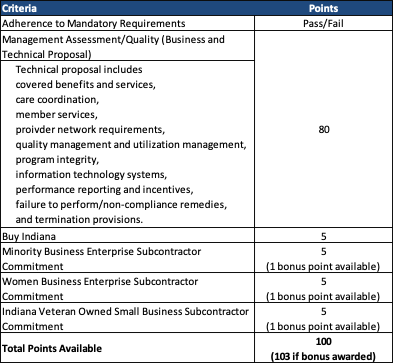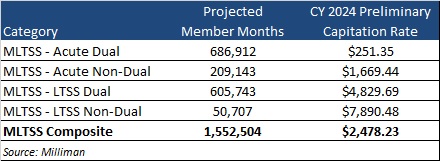As the urgent needs of COVID-19 Public Health Emergency (PHE) continue to subside, state Medicaid agencies are exploring pathways and concepts to further address the historic inequities and health disparities laid bare by the pandemic. These efforts are closely aligned with the current Administration’s policy objectives for the Medicaid program, specifically:
- Addressing health equity
- Improving access and coverage
- Promoting whole person care
For several decades, Medicaid Section 1115 demonstration programs have provided a powerful lever for federal and state policymakers to design, implement, and evaluate transformative initiatives. All states administer at least one Section 1115 demonstration program. Some demonstrations are narrowly tailored to address services or populations while others capture broader features pertaining to coverage, benefits, and payment and delivery system innovations.
Notably, a new wave of comprehensive and transformative Medicaid Section 1115 demonstration proposals is emerging.
Working closely with the Centers for Medicare and Medicaid Services (CMS), states are developing proposals that place individuals at the center of health care in an entirely new way – by recognizing their medical needs as well as the complexity of circumstances and environmental factors that shape the individual’s medical, physical, and behavioral care needs and outcomes.
Teams of experts from across the HMA family of companies are supporting state agencies, counties, health plans, providers, community and consumer organizations, and other stakeholders with translating federal goals and parameters into concrete proposals as these move through the stages of concept paper, application and negotiation, and implementation. Demonstrations will reflect each state’s unique political and policy landscapes, but the programs will be grounded in certain federal goals and expectations to enhance accountability and improve outcomes.
Our experts identified three trends in state 1115 demonstration programs. In this and subsequent In Focus posts we will share our team’s initial insights and considerations for stakeholders based on our collective “on the ground” expertise. We include illustrative examples from some states with approved and pending Section 1115 proposals.
Section 1115 Trend #1: States are advancing a new vision for Medicaid’s role in addressing health equity, influenced by social drivers and grounded in a community’s needs.
CMS is strongly encouraging states to consider initiatives that address health inequities and community specific social drivers of health. As evidenced by the current state initiatives, Section 1115 demonstration programs will be a primary — but not the only — pathway states utilize to design strategies to address health inequities driven by non-health systems and circumstances. Based on our work with states and stakeholders, it is critical that states ensure the services are directly linked to factors that impact health outcomes for Medicaid enrollees and that they have mechanisms to evaluate the impact of community and social care services.
Several state proposals already signal CMS’ current vision for using Section 1115 authority to test new types of assistance within service categories to include non-medical services, services tailored to populations, and assistance that is linked to desired outcomes. For example:
North Carolina’s Section 1115 pilot program will provide support to certain groups of consumers for an array of community supports ranging from housing related services and transportation access to interpersonal violence and access to food and nutrition services. The program includes help for consumers related to utility set up and moving costs, and support to connect with community services to address legal issues impacting housing and thereby impacting health.
 In December 2021, CMS approved California’s Section 1115 demonstration program and linked this to a separate waiver approval allowing the state to further enhance services and accountability within its managed care program. As part of California’s implementation of its statewide whole person care initiative, the state will be able to pay for housing navigation and tenancy services and assistance with first month deposits for certain populations enrolled in its statewide managed care program. This proposal is grounded in the state’s commitment to ensure that the non-medical services were clearly defined and clinically oriented for the intended population.
In December 2021, CMS approved California’s Section 1115 demonstration program and linked this to a separate waiver approval allowing the state to further enhance services and accountability within its managed care program. As part of California’s implementation of its statewide whole person care initiative, the state will be able to pay for housing navigation and tenancy services and assistance with first month deposits for certain populations enrolled in its statewide managed care program. This proposal is grounded in the state’s commitment to ensure that the non-medical services were clearly defined and clinically oriented for the intended population.
CMS’ approval of the North Carolina and California programs is paving the way for conversations in other states, including New York, New Jersey, and Oregon among others. Negotiations on similar initiatives to address health equity in other states, include:
 New York, like North Carolina, plans to seek CMS’ approval to offer a range of community services that would be provided through newly established networks of community-based organizations in all regions of the state. The state envisions that the CBO networks will include small neighborhood organizations familiar with their communities’ needs and the capacity to address multiple social risk factors as well as larger county or regionally focused entities. In addition, New York is asking CMS to support a health equity focused proposal which would provide certain “in-reach” services for incarcerated individuals before they are released.
New York, like North Carolina, plans to seek CMS’ approval to offer a range of community services that would be provided through newly established networks of community-based organizations in all regions of the state. The state envisions that the CBO networks will include small neighborhood organizations familiar with their communities’ needs and the capacity to address multiple social risk factors as well as larger county or regionally focused entities. In addition, New York is asking CMS to support a health equity focused proposal which would provide certain “in-reach” services for incarcerated individuals before they are released.
 Oregon submitted a request to use federal Medicaid spending authority to address community-based health inequities and to establish statewide health equity investments (HEIs). The state is especially focused on supporting consumers during disruptions in coverage, life transitions, or disruptions caused by climate events. Community-based investments will reflect empirical evidence and community assessments and may include efforts to improve building environments and expand culturally and linguistically. Addressing climate events may be of particular interest as it addresses multiple priorities for Administration.
Oregon submitted a request to use federal Medicaid spending authority to address community-based health inequities and to establish statewide health equity investments (HEIs). The state is especially focused on supporting consumers during disruptions in coverage, life transitions, or disruptions caused by climate events. Community-based investments will reflect empirical evidence and community assessments and may include efforts to improve building environments and expand culturally and linguistically. Addressing climate events may be of particular interest as it addresses multiple priorities for Administration.
Conclusion
North Carolina and California offer important insights into what may be possible and as importantly, what may be beyond the bounds of CMS’ Medicaid authority. Chief among the outstanding issues for states and stakeholders is whether additional innovative programs for addressing health disparities among justice-involved populations is possible under Medicaid’s demonstration authority.
CMS may use the experience with initial states to provide more concrete information on these general parameters and expectations. Formal guidance would prove helpful to states and stakeholders seeking to apply new knowledge and experiences with health inequities into practice within the Medicaid programs.
HMA’s interdisciplinary teams of Medicaid, human services, and actuarial experts are assisting states as well as stakeholders as they conceptualize, develop, and implement Section 1115 programs. To learn more about our work and the breadth of our services please contact HMA consultant Andrea Maresca, Principal.


